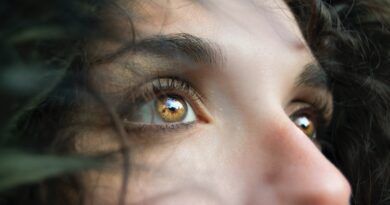Neste documentário intrigante do canal Be Smart, o público é conduzido através das complexidades surpreendentes da inteligência das plantas, desmistificando antigos experimentos e revelando as capacidades únicas de percepção e comunicação do reino vegetal. Da capacidade de discernir a direção da gravidade, à reação à luz e à detecção de sinais químicos, o mundo oculto da inteligência das plantas é explorado com rigor científico e uma narrativa envolvente. Assista para desvendar os segredos da natureza e compreender como, mesmo sem os sentidos humanos tradicionais, as plantas interagem, adaptam-se e comunicam-se de maneiras extraordinárias.
| Audio | |
|---|---|
Normal | Slow |
| English Transcript | Tradução |
| In the 1960's, at the height of the Cold War, CIA interrogator Cleve Baxter hooked his polygraph machine up to a house plant, for some reason. | Na década de 1960, no auge da Guerra Fria, o interrogador da CIA Cleve Baxter conectou sua máquina de polígrafo a uma planta doméstica, por algum motivo. |
| Over the course of his experiments, Baxter obsevered a change in electrical resistance when the plants were harmed, or threatened with harm. | Ao longo de seus experimentos, Baxter observou uma mudança na resistência elétrica quando as plantas eram prejudicadas ou ameaçadas de dano. |
| This led to the idea that plants possess sentience, that they might even have ESP, Extra Sensory Perception. | Isso levou à ideia de que as plantas possuem sensibilidade, que poderiam até ter Percepção Extra-Sensorial (PES). |
| Is there any truth to that notion? | Há alguma verdade nessa noção? |
| No. | Não. |
| Plants cannot see you, they can't hear you, and they most definitely can't read your mind. | Plantas não podem ver você, elas não podem ouvir você e definitivamente não podem ler sua mente. |
| But, the senses they do have are even more interesting. | Mas, os sentidos que elas têm são ainda mais interessantes. |
| Plants are literally rooted in one place. | Plantas são literalmente enraizadas em um lugar. |
| They can't run away from danger or walk over to the sunnier side of the garden. | Elas não podem fugir do perigo ou caminhar até o lado mais ensolarado do jardim. |
| They have to adapt to what nature gives them. | Elas têm que se adaptar ao que a natureza lhes dá. |
| So, they've developed special ways of sensing the world, and even communicating with each other. | Portanto, desenvolveram maneiras especiais de sentir o mundo e até de se comunicar entre si. |
| The first thing every plant figures out is which way is up, and which is down. | A primeira coisa que toda planta descobre é qual caminho fica para cima e qual fica para baixo. |
| It's called Proprioception, the ability to sense position in space and we do it too. | Isso é chamado Propriocepção, a habilidade de sentir a posição no espaço, e nós também fazemos isso. |
| So how do plants know the difference? | Então, como as plantas sabem a diferença? |
| Light is an obvious guess but even seeds that germinate in the dark can aim their shoots and roots correctly. | A luz é um palpite óbvio, mas até as sementes que germinam no escuro podem direcionar seus brotos e raízes corretamente. |
| Centuries ago, botanists noticed that an upside-down seedling would always reorient its parts, and that plants grown on a spinning wheel would point their roots in the direction of centrifugal force. | Séculos atrás, botânicos notaram que uma muda de cabeça para baixo sempre reorientaria suas partes, e que plantas cultivadas em uma roda giratória apontariam suas raízes na direção da força centrífuga. |
| It was clear that they were sensing gravity. | Estava claro que elas estavam sentindo a gravidade. |
| It was none other than Charles Darwin who showed that the gravity sensing cells lived in the tip of the root, cut them off and the plant doesn't know which way is down. | Foi ninguém menos que Charles Darwin quem mostrou que as células sensoras de gravidade viviam na ponta da raiz, corte-as e a planta não sabe qual caminho é para baixo. |
| Cells in the roots here actually contain tiny little bead-like particles, wherever gravity pulls them, that tells the root which way to grow. | Células nas raízes aqui contêm pequenas partículas semelhantes a contas, onde a gravidade as puxa, isso indica à raiz para onde crescer. |
| Cells in the shoot contain those same gravity sensing particles, but there, they signal the plant to grow away from gravity. | Células no broto contêm essas mesmas partículas sensoras de gravidade, mas lá, elas sinalizam à planta para crescer contra a gravidade. |
| We've all seen plants bend towards light, while we walk or drive to get food, plants grow toward it. | Todos nós já vimos plantas se inclinarem em direção à luz, enquanto caminhamos ou dirigimos para buscar comida, plantas crescem em direção a ela. |
| It's called Phototropism. | Isso é chamado Fototropismo. |
| It was Darwin again who tested plants bending to the light. | Foi Darwin novamente quem testou plantas se inclinando à luz. |
| If the tip of a seedling was cut off, the plant didn't change direction. | Se a ponta de uma muda fosse cortada, a planta não mudaria de direção. |
| Cell's in the growth tip sensed light and tell the rest of the plant how to grow in response. | Células na ponta de crescimento sentem luz e dizem ao resto da planta como crescer em resposta. |
| Plants can also measure how much light they get, or "Photoperiodism", which is how they keep track of the seasons. | Plantas também podem medir quanto de luz recebem, ou "Fotoperiodismo", que é como elas acompanham as estações do ano. |
| The last light a plant sees at night is in the far red of the spectrum, and this longer wavelength light inactivates a light-sensing molecule inside the plant, that isn't reactivated until the next morning. | A última luz que uma planta vê à noite está no extremo vermelho do espectro, e essa luz de comprimento de onda mais longo inativa uma molécula sensível à luz dentro da planta, que não é reativada até a manhã seguinte. |
| When it's hit by light that's a little more orange, this phytochrome cycle measures how much darkness there is, when this internal clock signals that the days are getting longer, plants know that it's spring, and longer nights mean autumn is on the way. | Quando é atingida por luz um pouco mais laranja, esse ciclo de fitocromo mede quanto de escuridão há, quando esse relógio interno sinaliza que os dias estão ficando mais longos, as plantas sabem que é primavera, e noites mais longas significam que o outono está a caminho. |
| Plants don't have noses, but they can detect chemical signals in the air, which isn't that different to what we do when we smell. | Plantas não têm narizes, mas podem detectar sinais químicos no ar, o que não é muito diferente do que fazemos quando cheiramos. |
| Ancient Egyptians would ripen their figs by cutting open a few in every bunch. | Os antigos egípcios amadureciam seus figos cortando alguns em cada grupo. |
| Farmers in Florida used kerosene lamps to ripen oranges, and to soften an unripe peach or avocado we put it in a paper bag with a ripe banana. | Agricultores na Flórida usavam lampiões a querosene para amadurecer laranjas, e para amolecer um pêssego ou abacate verde, colocamos em um saco de papel com uma banana madura. |
| But what do all these tricks have in common? | Mas o que todos esses truques têm em comum? |
| "Ethylene Gas", plant's ripening hormone. | "Gás Etileno", o hormônio de amadurecimento das plantas. |
| It's nice for us at the grocery store, but ethylene helps plants by synchronizing ripening, to draw in hungry seed-dispersing animals. | É bom para nós no supermercado, mas o etileno ajuda as plantas sincronizando o amadurecimento, para atrair animais famintos que dispersam sementes. |
| It's also one of the signals that tells leaves their job is done for the year. | Também é um dos sinais que dizem às folhas que seu trabalho acabou por este ano. |
| This weird plant basically forgot how to do photosynthesis, but it gets by, by stealing food from its neighbors. | Essa planta estranha basicamente esqueceu como fazer fotossíntese, mas se vira roubando comida de suas vizinhas. |
| It even has a preference for which plants it steals from. | Ela até tem uma preferência por quais plantas rouba. |
| The tip of growing seedling sniffs the air seeking the smell of its favorite victim, a tomato plant and ignoring all the others. | A ponta de uma muda em crescimento fareja o ar procurando o cheiro de sua vítima preferida, uma planta de tomate, ignorando todas as outras. |
| When it finds a leaf it even knows to aim down for the stem so it can drink the good stuff. | Quando encontra uma folha, ela até sabe apontar para baixo para o caule para poder beber o que é bom. |
| Some plants use air mail to warn each other of danger. | Algumas plantas usam correio aéreo para alertar umas às outras sobre o perigo. |
| When hungry caterpillars show up, injured leaves release volatile chemicals, and other leaves sniff out those signals and start making toxic compounds, so, they're less appetizing. | Quando lagartas famintas aparecem, folhas feridas liberam compostos voláteis, e outras folhas detectam esses sinais e começam a produzir compostos tóxicos, para serem menos apetitosas. |
| In other plants those airbourne alarms tell the plant to pump out tasty nectar, which attracts beetle-eating insects. | Em outras plantas, esses alarmes aéreos dizem à planta para excretar néctar saboroso, atraindo insetos que comem besouros. |
| Nearby plants can even eavesdrop on these signals, toughening up their defenses before they get attacked. | Plantas próximas podem até escutar esses sinais, reforçando suas defesas antes de serem atacadas. |
| Our sense of touch is really several senses, each detected by specific receptors on specific types of nerves, and those signals are eventually processed by the brain. | Nosso sentido do tato é realmente vários sentidos, cada um detectado por receptores específicos em tipos específicos de nervos, e esses sinais são eventualmente processados pelo cérebro. |
| Plants can sense those same things, they just do it their own way. | Plantas podem sentir essas mesmas coisas, só que do jeito delas. |
| A vine can sense when it's touching an object, and signal special cells to change shape and coil around like a spring. | Uma videira pode sentir quando está tocando um objeto e sinalizar células especiais para mudar de forma e se enrolar como uma mola. |
| That sense of touch is incredibly sensitive, the weight of a single thread brushed along a cucumber vine is enough to start it winding. | Esse sentido do tato é incrivelmente sensível, o peso de um único fio passado ao longo de uma videira de pepino é suficiente para que ela comece a se enrolar. |
| If you rub your finger along the leaves of this plant, they'll fold up. | Se você esfregar o dedo ao longo das folhas desta planta, elas se fecharão. |
| Touch sends an electrical signal shooting along the leaf, activating tiny hydraulic pumps at the base of the leaflets, making the leaf go limp. | O toque envia um sinal elétrico que percorre a folha, ativando pequenas bombas hidráulicas na base dos folíolos, fazendo a folha murchar. |
| Thanks to this shy habit, we call it the "Sensitive plant". | Graças a esse hábito tímido, chamamos de "planta sensível". |
| Next time that you stop to look and smell the flowers, take a moment to consider that they might be doing the same thing. | Na próxima vez que você parar para olhar e cheirar as flores, reserve um momento para considerar que elas podem estar fazendo a mesma coisa. |
| Stay curious. | Seja curioso. |
| Oh, and that thing you heard about plants and classical music, sorry, they're deaf. | Ah, e aquela coisa que você ouviu sobre plantas e música clássica, desculpe, elas são surdas. |
| But, a little Mozart's never a bad thing. | Mas, um pouco de Mozart nunca é algo ruim. |
Contagem de palavras
A tabela abaixo exibe as palavras encontradas neste vídeo, bem como o número de vezes em que aparecem.
Veja também: Para que serve esta tabela?
| Freq. | Palavra | Freq. | Palavra | Freq. | Palavra |
|---|---|---|---|---|---|
| 58 | the | 25 | to | 24 | is |
| 22 | it | 20 | of | 20 | and |
| 20 | a | 19 | that | 19 | plants |
| 19 | in | 18 | they | 14 | plant |
| 9 | light | 8 | which | 8 | do |
| 8 | but | 7 | when | 7 | we |
| 7 | this | 7 | have | 7 | even |
| 7 | can | 7 | by | 6 | their |
| 6 | signals | 6 | how | 6 | are |
| 5 | you | 5 | way | 5 | up |
| 5 | those | 5 | sensing | 5 | sense |
| 5 | other | 5 | or | 5 | not |
| 5 | gravity | 5 | for | 5 | an |
| 4 | was | 4 | tip | 4 | thing |
| 4 | so | 4 | s | 4 | on |
| 4 | leaves | 4 | grow | 4 | from |
| 4 | down | 4 | cells | 4 | cannot |
| 4 | at | 3 | would | 3 | with |
| 3 | what | 3 | touch | 3 | there |
| 3 | them | 3 | smell | 3 | signal |
| 3 | seedling | 3 | same | 3 | roots |
| 3 | out | 3 | longer | 3 | little |
| 3 | leaf | 3 | know | 3 | its |
| 3 | get | 3 | each | 3 | change |
| 3 | along | 3 | all | 3 | air |
| 2 | your | 2 | who | 2 | were |
| 2 | walk | 2 | vine | 2 | tiny |
| 2 | these | 2 | tells | 2 | tell |
| 2 | start | 2 | spring | 2 | specific |
| 2 | special | 2 | some | 2 | sensitive |
| 2 | senses | 2 | root | 2 | ripening |
| 2 | ripen | 2 | particles | 2 | over |
| 2 | one | 2 | off | 2 | next |
| 2 | much | 2 | more | 2 | might |
| 2 | making | 2 | like | 2 | if |
| 2 | hungry | 2 | his | 2 | food |
| 2 | every | 2 | ethylene | 2 | electrical |
| 2 | direction | 2 | darwin | 2 | danger |
| 2 | cut | 2 | contain | 2 | called |
| 2 | baxter | 2 | away | 2 | also |
| 2 | aim | 1 | year | 1 | world |
| 1 | winding | 1 | will | 1 | while |
| 1 | wherever | 1 | wheel | 1 | weird |
| 1 | weight | 1 | ways | 1 | wavelength |
| 1 | warn | 1 | war | 1 | volatile |
| 1 | victim | 1 | used | 1 | use |
| 1 | us | 1 | upside | 1 | until |
| 1 | unripe | 1 | types | 1 | truth |
| 1 | tricks | 1 | track | 1 | toxic |
| 1 | towards | 1 | toward | 1 | toughening |
| 1 | touching | 1 | too | 1 | tomato |
| 1 | time | 1 | threatened | 1 | thread |
| 1 | things | 1 | thanks | 1 | than |
| 1 | tested | 1 | tasty | 1 | take |
| 1 | synchronizing | 1 | sunnier | 1 | stuff |
| 1 | store | 1 | stop | 1 | stem |
| 1 | steals | 1 | stealing | 1 | stay |
| 1 | spinning | 1 | spectrum | 1 | space |
| 1 | sorry | 1 | soften | 1 | sniffs |
| 1 | sniff | 1 | single | 1 | side |
| 1 | shy | 1 | showed | 1 | show |
| 1 | shoots | 1 | shooting | 1 | shoot |
| 1 | shape | 1 | several | 1 | sentience |
| 1 | sensory | 1 | sensed | 1 | sends |
| 1 | sees | 1 | seen | 1 | seeking |
| 1 | seeds | 1 | seed | 1 | see |
| 1 | seasons | 1 | run | 1 | rub |
| 1 | rooted | 1 | ripe | 1 | rest |
| 1 | response | 1 | resistance | 1 | reorient |
| 1 | release | 1 | red | 1 | receptors |
| 1 | reason | 1 | really | 1 | read |
| 1 | reactivated | 1 | put | 1 | pumps |
| 1 | pump | 1 | pulls | 1 | proprioception |
| 1 | processed | 1 | preference | 1 | possess |
| 1 | position | 1 | polygraph | 1 | point |
| 1 | place | 1 | phytochrome | 1 | phototropism |
| 1 | photosynthesis | 1 | photoperiodism | 1 | perception |
| 1 | peach | 1 | parts | 1 | paper |
| 1 | own | 1 | our | 1 | others |
| 1 | oranges | 1 | orange | 1 | open |
| 1 | oh | 1 | obvious | 1 | obsevered |
| 1 | object | 1 | notion | 1 | noticed |
| 1 | noses | 1 | none | 1 | no |
| 1 | nights | 1 | night | 1 | nice |
| 1 | never | 1 | nerves | 1 | neighbors |
| 1 | nectar | 1 | nearby | 1 | nature |
| 1 | music | 1 | mozart | 1 | most |
| 1 | morning | 1 | moment | 1 | molecule |
| 1 | mind | 1 | measures | 1 | measure |
| 1 | mean | 1 | 1 | machine | |
| 1 | look | 1 | lived | 1 | literally |
| 1 | limp | 1 | less | 1 | led |
| 1 | leaflets | 1 | last | 1 | lamps |
| 1 | knows | 1 | kerosene | 1 | keep |
| 1 | just | 1 | job | 1 | interrogator |
| 1 | internal | 1 | interesting | 1 | inside |
| 1 | insects | 1 | injured | 1 | incredibly |
| 1 | inactivates | 1 | ignoring | 1 | idea |
| 1 | hydraulic | 1 | house | 1 | hormone |
| 1 | hooked | 1 | hit | 1 | here |
| 1 | helps | 1 | height | 1 | heard |
| 1 | hear | 1 | has | 1 | harmed |
| 1 | harm | 1 | habit | 1 | guess |
| 1 | growth | 1 | grown | 1 | growing |
| 1 | grocery | 1 | good | 1 | go |
| 1 | gives | 1 | getting | 1 | gets |
| 1 | germinate | 1 | gas | 1 | garden |
| 1 | forgot | 1 | force | 1 | fold |
| 1 | flowers | 1 | florida | 1 | first |
| 1 | finger | 1 | finds | 1 | figures |
| 1 | figs | 1 | few | 1 | favorite |
| 1 | farmers | 1 | far | 1 | extra |
| 1 | experiments | 1 | eventually | 1 | esp |
| 1 | enough | 1 | egyptians | 1 | eavesdrop |
| 1 | eating | 1 | drive | 1 | drink |
| 1 | draw | 1 | done | 1 | doing |
| 1 | does | 1 | dispersing | 1 | different |
| 1 | difference | 1 | did | 1 | developed |
| 1 | detected | 1 | detect | 1 | definitely |
| 1 | defenses | 1 | deaf | 1 | days |
| 1 | darkness | 1 | dark | 1 | cycle |
| 1 | cutting | 1 | curious | 1 | cucumber |
| 1 | course | 1 | correctly | 1 | consider |
| 1 | compounds | 1 | communicating | 1 | common |
| 1 | cold | 1 | coil | 1 | clock |
| 1 | cleve | 1 | clear | 1 | classical |
| 1 | cia | 1 | chemicals | 1 | chemical |
| 1 | charles | 1 | centuries | 1 | centrifugal |
| 1 | cell | 1 | caterpillars | 1 | call |
| 1 | bunch | 1 | brushed | 1 | brain |
| 1 | botanists | 1 | bending | 1 | bend |
| 1 | before | 1 | beetle | 1 | bead |
| 1 | be | 1 | basically | 1 | base |
| 1 | banana | 1 | bag | 1 | bad |
| 1 | avocado | 1 | autumn | 1 | attracts |
| 1 | attacked | 1 | around | 1 | appetizing |
| 1 | any | 1 | animals | 1 | ancient |
| 1 | always | 1 | alarms | 1 | airbourne |
| 1 | ago | 1 | again | 1 | adapt |
| 1 | actually | 1 | activating | 1 | about |
| 1 | ability |










